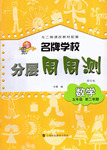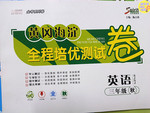题目内容
Men have always wondered about the earth they live on and about the ①_____ above them.
When early men looked at the night sky, they asked themselves a lot of questions. They looked at the moon, and wondered what this strange bright object in the sky was. They did not understand why it changed its shape from night to night. They looked at the stars and planets. They also wondered why some of them changed their positions, while others did not.
②他们也思考地球的形状。 Most early people believed the earth was flat.
③In different parts of the world, there were different ideas about the universe. The ancient Greeks were the first people to study the universe more scientifically. In the sixth century BC Pythagoras put forward the idea that the world was round. However, he could not explain why people at the bottom of the world did not fall off.
It was not until the sixteenth and seventeenth centuries that scientists found the answers to some important questions. ④With the help of Galileo’s telescope, people could see the sky more clearly, and find the positions of the stars and planets. Finally in 1665, Isaac Newton explained to the world what gravity (重力) was and people at last understood why they did not fall off the earth.
小题1:在文中①处填写一个单词,使得句意完整、上下文通顺。___________________
小题2:根据文章内容回答问题。
What questions did early men ask themselves when they looked at the night sky? Write down one of them.
_________________________________________________________________________
小题3:将文中②句翻译成英语。
_________________________________________________________________________
小题4:将文中③句翻译成汉语。
_________________________________________________________________________
小题5:写出文中④句的同义句,每空限填一词。
Galileo’s telescope made _________________ for people to see the sky more clearly, and to find the positions of the stars and planets.
When early men looked at the night sky, they asked themselves a lot of questions. They looked at the moon, and wondered what this strange bright object in the sky was. They did not understand why it changed its shape from night to night. They looked at the stars and planets. They also wondered why some of them changed their positions, while others did not.
②他们也思考地球的形状。 Most early people believed the earth was flat.
③In different parts of the world, there were different ideas about the universe. The ancient Greeks were the first people to study the universe more scientifically. In the sixth century BC Pythagoras put forward the idea that the world was round. However, he could not explain why people at the bottom of the world did not fall off.
It was not until the sixteenth and seventeenth centuries that scientists found the answers to some important questions. ④With the help of Galileo’s telescope, people could see the sky more clearly, and find the positions of the stars and planets. Finally in 1665, Isaac Newton explained to the world what gravity (重力) was and people at last understood why they did not fall off the earth.
小题1:在文中①处填写一个单词,使得句意完整、上下文通顺。___________________
小题2:根据文章内容回答问题。
What questions did early men ask themselves when they looked at the night sky? Write down one of them.
_________________________________________________________________________
小题3:将文中②句翻译成英语。
_________________________________________________________________________
小题4:将文中③句翻译成汉语。
_________________________________________________________________________
小题5:写出文中④句的同义句,每空限填一词。
Galileo’s telescope made _________________ for people to see the sky more clearly, and to find the positions of the stars and planets.
小题1:sky
小题2:They asked what this strange bright object in the sky was. OR
What is the strange bright object in the sky? OR
They asked why the strange object changed its shape from night to night. OR
Why does the strange object change its shape from night to night? OR
They asked why some of the stars and planets changed their position, while others did not.
Why do some of the stars and planets change their positions, while others do not?
小题3:They also thought about the shape of the earth. (too, as well )
小题4:世界的不同地方存在着对宇宙的不同想法。
小题5:it possible
短文大意:这篇短文主要介绍了人们自古以来就对太空有很多疑问,想知道地球上的天空究竟是什么样子。世界上不同的地方对天空有着许多不同的认识,直到十六七世纪,发明了太空望远镜以后,人们才对太空有了更多的认识。
小题1:联系上下文,可知此处指的是地球上的填空。故填名词sky,填空,抽象名词不可数,故用原形即可。
小题2:根据第二段描述,可知答: They asked what this strange bright object in the sky was. OR
What is the strange bright object in the sky? OR
They asked why the strange object changed its shape from night to night. OR
Why does the strange object change its shape from night to night? OR
They asked why some of the stars and planets changed their position, while others did not.
Why do some of the stars and planets change their positions, while others do not?
小题3:考察短语think about考虑。结合可知本句描述的是过去发生的动作,故谓语动词用过去式。注意副词also too as well的用法区别。also,as well,too,用于肯定句,also常用于be动词,情态动词,助动词之后,行为动词之前;as well,too用于句末;
小题4:考察there be句型的翻译,这个句型表示某地有某物。
小题5:本句话的含义是,在伽利略望远镜的帮助下,人们能够更清楚的看见太空,发现恒星和行星的位置。结合语境可知填it possible,伽利略望远镜让人们更清楚的看见太空,发现恒星和行星的位置成为可能。
小题1:联系上下文,可知此处指的是地球上的填空。故填名词sky,填空,抽象名词不可数,故用原形即可。
小题2:根据第二段描述,可知答: They asked what this strange bright object in the sky was. OR
What is the strange bright object in the sky? OR
They asked why the strange object changed its shape from night to night. OR
Why does the strange object change its shape from night to night? OR
They asked why some of the stars and planets changed their position, while others did not.
Why do some of the stars and planets change their positions, while others do not?
小题3:考察短语think about考虑。结合可知本句描述的是过去发生的动作,故谓语动词用过去式。注意副词also too as well的用法区别。also,as well,too,用于肯定句,also常用于be动词,情态动词,助动词之后,行为动词之前;as well,too用于句末;
小题4:考察there be句型的翻译,这个句型表示某地有某物。
小题5:本句话的含义是,在伽利略望远镜的帮助下,人们能够更清楚的看见太空,发现恒星和行星的位置。结合语境可知填it possible,伽利略望远镜让人们更清楚的看见太空,发现恒星和行星的位置成为可能。

练习册系列答案
 名牌学校分层周周测系列答案
名牌学校分层周周测系列答案 黄冈海淀全程培优测试卷系列答案
黄冈海淀全程培优测试卷系列答案
相关题目
